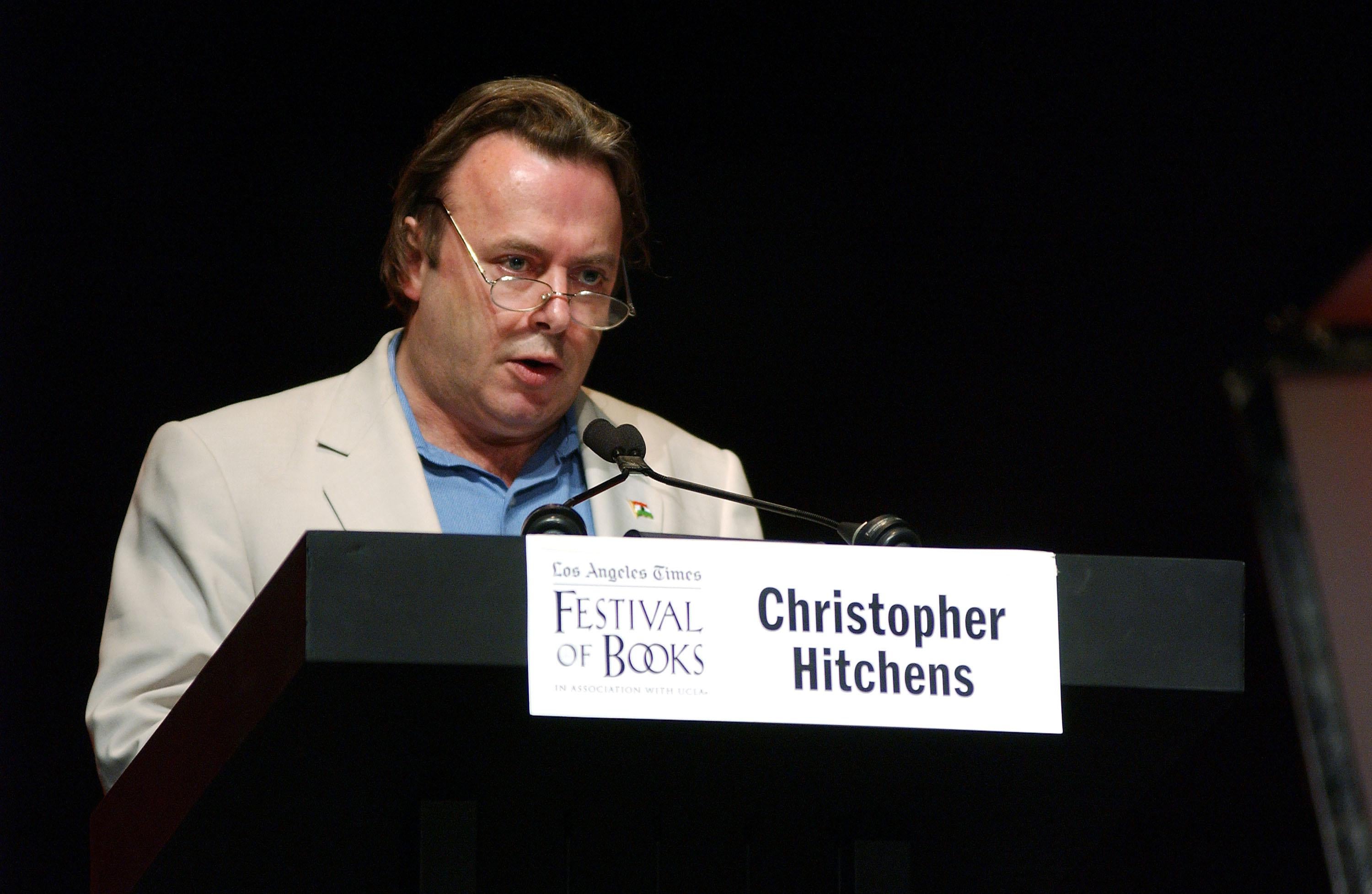See Slate’s full tribute to the life of Christopher Hitchens. Read Slate’s complete collection of Christopher Hitchens’ columns.
The Hitch drank. The Hitch wrote. The Hitch remembered.
In Herzog, Bellow’s hero says: “I persecuted [Nachman] with the engine of my memory.”
Hitch took part in a Vanity Fair debate at the Oxford Union with Sidney Blumenthal and Alan Clark. It was organized by the then editor, Tina Brown. Hitch got to his feet: “I stand before you, without shame, reeking of cigarettes and alcohol …” (The debating topic was public and private morality in politicians.) He then recalled strolling with Alan Clark across Commons Green outside the Houses of Parliament at Westminster: “where he told me he was a Nazi,” Christopher disclosed, with his most charming smile. The smile on Alan Clark’s face flickered and faded. Notoriously frank, he wasn’t easily discomfited. Hitch had managed it. I don’t remember precisely when this was.
I never saw the legendary program when Hitch appeared with Charlton Heston, who, for some unaccountable reason was representing the first Bush administration in his capacity as an all-purpose hawk. As they were being introduced by the presenter, Hitch cut in: “We all know who Charlton Heston is. I just want to ask him one question. [Pause. Smile.] Which countries border Iraq?” Heston, of course, had no idea.
In debate, Hitch was lethal—a super-articulate terrorist, fearless, uningratiating, unforgettable, and unforgetting. The facts never failed him. He had total recall. And he usually had something spectacular to throw into the audience.
I stayed with him in Washington when he was married to Eleni Meleagrou. I was reading at the Library of Congress. As Eleni and I were having tea, Christopher came in, fresh from California, reeking of fags and booze. He had been debating with Alexander Cockburn. “Drink?” I said I never drank before a reading. “Gosh,” he said and poured himself a big brandy and Campari. For the next two hours, he put it away. Then we went to the Library of Congress. Afterwards we went to several bars. By 1 a.m. I was speechless with drink and Hitch was in spate.
I don’t remember going to bed. I got up at 7 and found my way to the bathroom, wary as a seal, in case my headache exploded. Hitch was in his study, at his desk, a glass of brandy and Campari to hand, a cigarette immolating itself in the ashtray. He was writing a piece.
One night in Oxford, Hitch and I were having supper at James Fenton’s house. Drink had been taken. At 2 a.m. James was asleep at his kitchen table. The historians Norman Stone and Timothy Garton Ash arrived. Things became hilarious. I left at 4:30. Hitch was filming at 6 a.m. The filming went off—with the Hitch, without a hitch.
Six months, a year later, Hitch and I were outside in Bedford Square at a party thrown by Jonathan Cape. I asked him about the evening in Oxford. Wasn’t there a particularly amusing moment, I dimly recalled, when someone said something to … I floundered.
Hitch: James said, then you said, but Tim interrupted, Norman shouted him down, and I capped it with …
He remembered every word, every detail, every discreditable drunken detail. May he rest in peace. Now his friends can rest in peace. The Hitch and the unstoppable engine are at rest. We remember him with love and gratitude. We remember him remembering: there was something amazing in that, something wonderful.
See Slate’s full tribute to the life of Christopher Hitchens. Read Slate’s complete collection of Christopher Hitchens’ columns.
